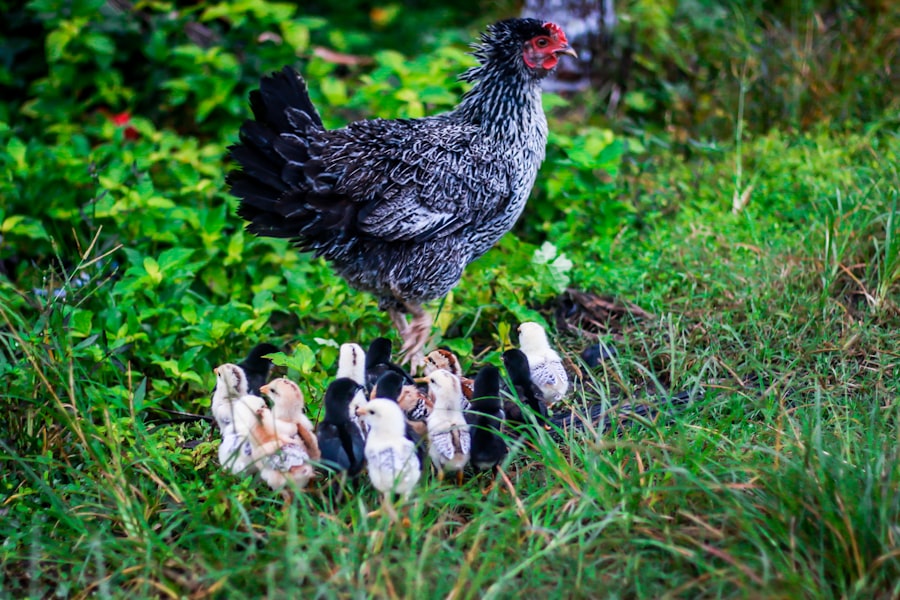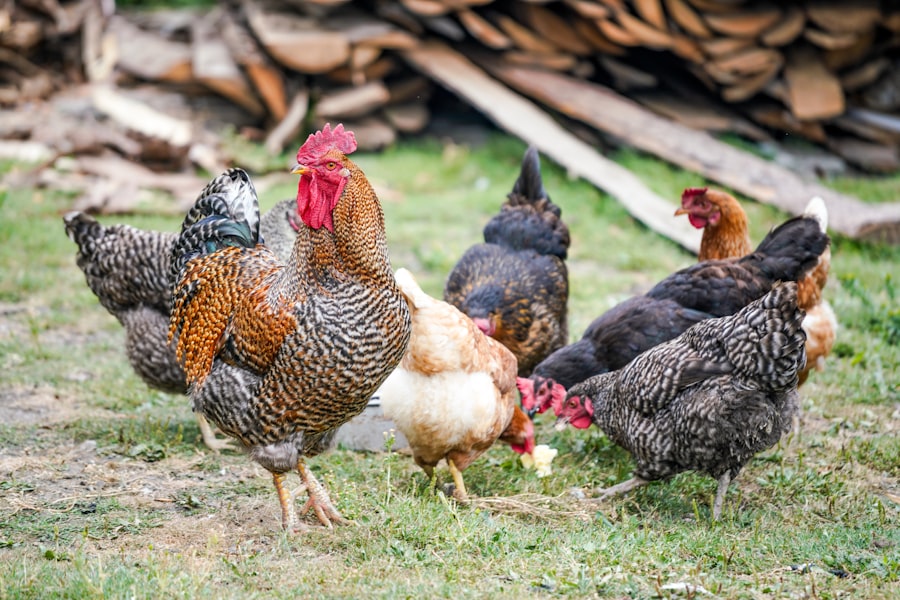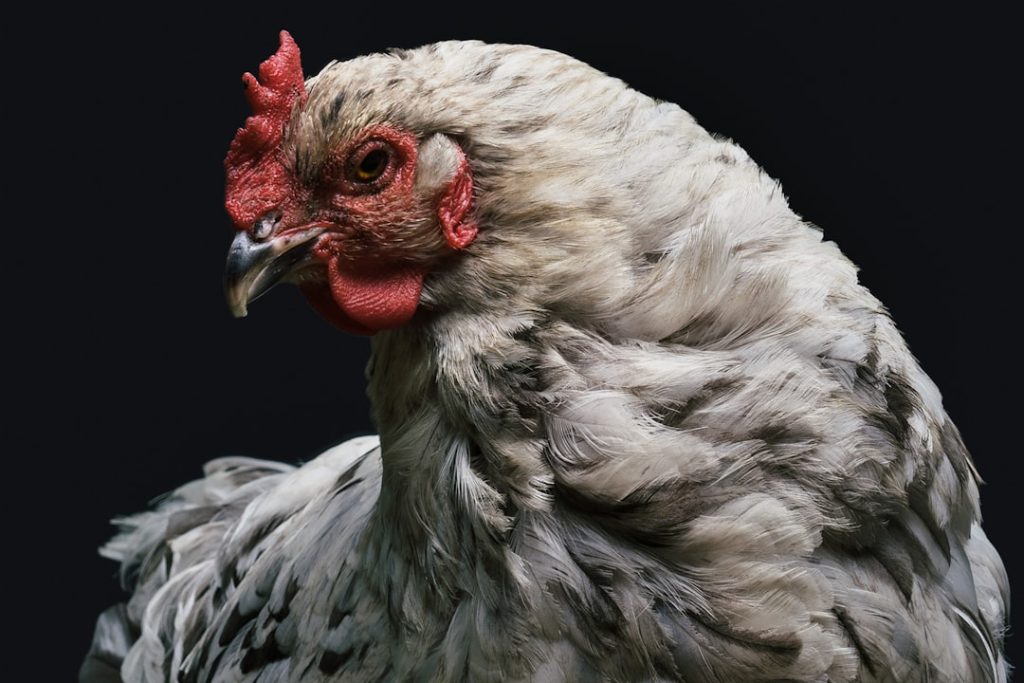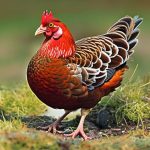Chickens require mental and physical stimulation for optimal health, particularly during winter when they spend more time indoors due to cold weather. Providing entertainment for chickens in winter is essential for their well-being and overall health. Without adequate stimulation, chickens may experience boredom and stress, potentially leading to negative behaviors such as feather pecking and aggression.
During winter, chickens have limited access to outdoor spaces, which can result in restlessness and signs of stress. It is crucial to offer activities that engage their natural instincts, such as foraging and exploring, to keep their minds and bodies active. Mental stimulation helps prevent boredom and maintains overall well-being in chickens, just as it does in humans.
By recognizing the importance of entertainment for chickens during winter, poultry keepers can prioritize their needs and ensure their flock remains healthy and content despite the challenges of the season. Implementing appropriate enrichment activities can help mitigate the negative effects of prolonged indoor confinement and promote the chickens’ physical and mental health throughout the colder months.
Table of Contents
- 1 Providing Enrichment Activities for Chickens in the Coop
- 2 Creating a Winter-Proof Outdoor Run for Chickens
- 3 Introducing Novelty Items and Toys for Chickens
- 4 Incorporating Foraging Opportunities for Chickens
- 5 Implementing Environmental Enrichment for Chickens
- 6 Monitoring and Adjusting Entertainment Strategies for Chickens in Winter
- 7 FAQs
- 7.1 What are some ways to keep chickens entertained in the winter?
- 7.2 Why is it important to keep chickens entertained in the winter?
- 7.3 What are some DIY ideas for keeping chickens entertained in the winter?
- 7.4 Are there any safety considerations when keeping chickens entertained in the winter?
- 7.5 How can I create a stimulating environment for my chickens in the winter?
Key Takeaways
- Entertainment is important for chickens in winter to prevent boredom and stress
- Enrichment activities in the coop can include hanging treats, perches, and mirrors
- A winter-proof outdoor run for chickens should have shelter, dry ground, and wind protection
- Novelty items and toys like hanging cabbage or a chicken swing can provide entertainment
- Foraging opportunities can be created with scattered food, hiding treats, or using a chicken-friendly foraging box
- Environmental enrichment for chickens can involve natural elements like branches, logs, and dust baths
- Monitoring and adjusting entertainment strategies is crucial to ensure chickens remain engaged and happy throughout winter
Providing Enrichment Activities for Chickens in the Coop
Hanging Treats and Toys
When it comes to providing entertainment for chickens in the coop during winter, hanging a variety of treats and toys from the ceiling is a great option. This not only encourages chickens to jump and stretch for their treats but also provides mental stimulation as they figure out how to access the goodies.
Dust Bathing and Perching
Another great way to keep chickens entertained in the coop is by providing them with a dust bath area. Chickens love to dust bathe, and by providing them with a designated area filled with sand or diatomaceous earth, they can engage in this natural behavior even when they can’t access the outdoors. Providing perches and platforms in the coop can also offer entertainment for chickens. Chickens love to roost and perch, so providing them with different levels and surfaces to explore can keep them active and engaged.
Visual Stimulation
Introducing mirrors or shiny objects in the coop can also provide visual stimulation for chickens. These simple yet effective enrichment activities can help keep chickens entertained and mentally stimulated during the long winter months spent indoors.
Creating a Winter-Proof Outdoor Run for Chickens

While it’s important to provide entertainment for chickens inside the coop during winter, it’s also beneficial to create a winter-proof outdoor run where they can still access fresh air and exercise. Creating a winter-proof outdoor run involves ensuring that it is protected from harsh weather elements such as snow, wind, and rain. This can be achieved by covering the run with a clear plastic tarp or building a roof over it to provide shelter from the elements.
Additionally, providing windbreaks such as hay bales or wooden panels can help create a more comfortable outdoor environment for chickens during winter. Another important aspect of creating a winter-proof outdoor run for chickens is ensuring that it is predator-proof. This means reinforcing fencing and adding secure latches to prevent predators from accessing the run.
By creating a safe and protected outdoor space for chickens during winter, they can still have access to fresh air, sunlight, and exercise, which are essential for their overall well-being.
Introducing Novelty Items and Toys for Chickens
Introducing novelty items and toys into the chicken coop can provide endless entertainment for our feathered friends during the winter months. Novelty items such as hanging cabbage or lettuce heads can serve as both a treat and a toy for chickens. By hanging these items at different heights, chickens are encouraged to jump and stretch to reach them, providing both physical and mental stimulation.
Additionally, introducing toys such as hanging mirrors or shiny objects can provide visual stimulation for chickens, keeping them engaged and entertained. Another great way to introduce novelty items and toys for chickens is by providing them with puzzle feeders or treat balls. These interactive toys require chickens to work for their treats, stimulating their natural foraging instincts and keeping them mentally sharp.
Furthermore, introducing items such as swings or perches can provide physical activity and entertainment for chickens in the coop. By incorporating a variety of novelty items and toys into the chicken coop, we can ensure that our feathered friends remain entertained and stimulated throughout the winter months.
Incorporating Foraging Opportunities for Chickens
Foraging is a natural behavior for chickens, and incorporating foraging opportunities into their environment can provide endless entertainment during the winter months. One way to incorporate foraging opportunities for chickens is by scattering their feed on the ground rather than placing it in a feeder. This encourages chickens to peck and scratch at the ground, mimicking their natural foraging behavior and keeping them mentally stimulated.
Additionally, hiding treats or mealworms in different areas of the coop or run can provide a fun scavenger hunt for chickens, keeping them engaged and entertained. Another great way to incorporate foraging opportunities for chickens is by providing them with a variety of natural materials to explore and peck at. This can include hanging bundles of herbs or grasses, scattering leaves or straw on the ground, or providing them with logs or branches to peck at.
By incorporating foraging opportunities into their environment, we can ensure that chickens remain mentally stimulated and engaged even when they are confined indoors during winter.
Implementing Environmental Enrichment for Chickens

Varying Surroundings for Stimulation
Implementing environmental enrichment for chickens can contribute to their overall well-being during winter by providing physical and mental stimulation. One way to do this is by varying their surroundings with different textures and materials. This can be achieved by adding straw or wood shavings to different areas of the coop or run, providing different surfaces for chickens to explore and interact with.
Natural Elements for Sensory Stimulation
Introducing natural elements such as plants or herbs into their environment can provide sensory stimulation and enrichment for chickens. This can help to keep them engaged and interested in their surroundings, even when spending more time indoors during winter.
Chickens are social animals and thrive on interaction with their flock mates. By providing them with ample space to move around and interact with each other, we can ensure that they remain socially stimulated even when spending more time indoors during winter. Furthermore, providing them with hiding spots or areas where they can retreat and feel safe can also contribute to their overall sense of well-being.
Monitoring and Adjusting Entertainment Strategies for Chickens in Winter
Finally, it’s important to monitor and adjust entertainment strategies for chickens in winter to ensure that they remain engaged and stimulated throughout the season. This involves observing their behavior regularly to assess their level of engagement with enrichment activities and making adjustments as needed. For example, if certain toys or treats are no longer capturing their interest, it may be time to introduce new items or rotate existing ones to keep things fresh and exciting.
Additionally, monitoring their overall well-being is crucial in determining whether entertainment strategies are effective. If chickens are exhibiting signs of stress or boredom despite enrichment efforts, it may be necessary to reassess their environment and make changes accordingly. By staying attentive to their behavior and needs, we can ensure that our feathered friends remain happy and healthy throughout the winter months.
In conclusion, understanding the importance of entertainment for chickens in winter is crucial for their overall well-being. By providing enrichment activities in the coop, creating a winter-proof outdoor run, introducing novelty items and toys, incorporating foraging opportunities, implementing environmental enrichment, and monitoring and adjusting entertainment strategies, we can ensure that our feathered friends remain happy and healthy throughout the colder months. With proper care and attention to their needs, chickens can thrive even during the challenges of winter.
If you’re looking for ways to keep your chickens entertained in the winter, you might also be interested in learning about how many eggs geese lay. Check out this article to discover more about geese breeding and egg production. Understanding the egg-laying habits of geese can provide valuable insight into poultry care and management during the winter months.
FAQs
What are some ways to keep chickens entertained in the winter?
Some ways to keep chickens entertained in the winter include providing them with hanging treats, setting up a dust bathing area, offering them a variety of perches, and providing them with toys such as hanging mirrors or shiny objects.
Why is it important to keep chickens entertained in the winter?
Keeping chickens entertained in the winter is important for their mental and physical well-being. It can help prevent boredom and reduce stress, which can lead to healthier and happier chickens.
What are some DIY ideas for keeping chickens entertained in the winter?
Some DIY ideas for keeping chickens entertained in the winter include creating a chicken swing, making a chicken treat dispenser, building a chicken tunnel or maze, and setting up a chicken-friendly obstacle course.
Are there any safety considerations when keeping chickens entertained in the winter?
When keeping chickens entertained in the winter, it’s important to ensure that any toys or treats provided are safe and non-toxic for chickens. Additionally, it’s important to monitor the chickens to ensure they are using the entertainment items safely and not getting injured.
How can I create a stimulating environment for my chickens in the winter?
To create a stimulating environment for chickens in the winter, you can provide them with a variety of perches at different heights, offer them different textures to explore such as straw or hay, and provide them with opportunities for foraging by scattering treats or food in their enclosure.
Meet Walter, the feathered-friend fanatic of Florida! Nestled in the sunshine state, Walter struts through life with his feathered companions, clucking his way to happiness. With a coop that’s fancier than a five-star hotel, he’s the Don Juan of the chicken world. When he’s not teaching his hens to do the cha-cha, you’ll find him in a heated debate with his prized rooster, Sir Clucks-a-Lot. Walter’s poultry passion is no yolk; he’s the sunny-side-up guy you never knew you needed in your flock of friends!







